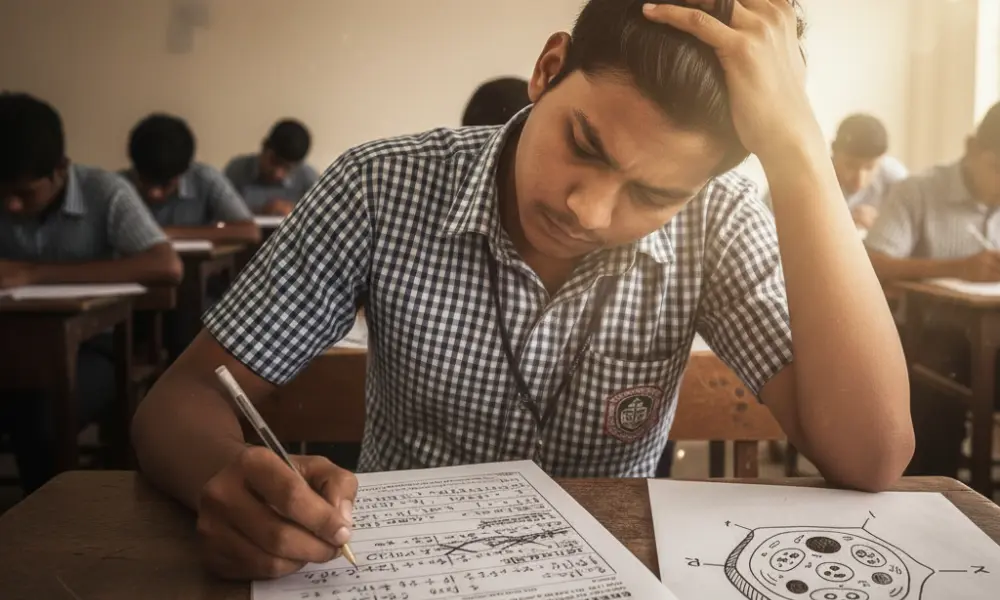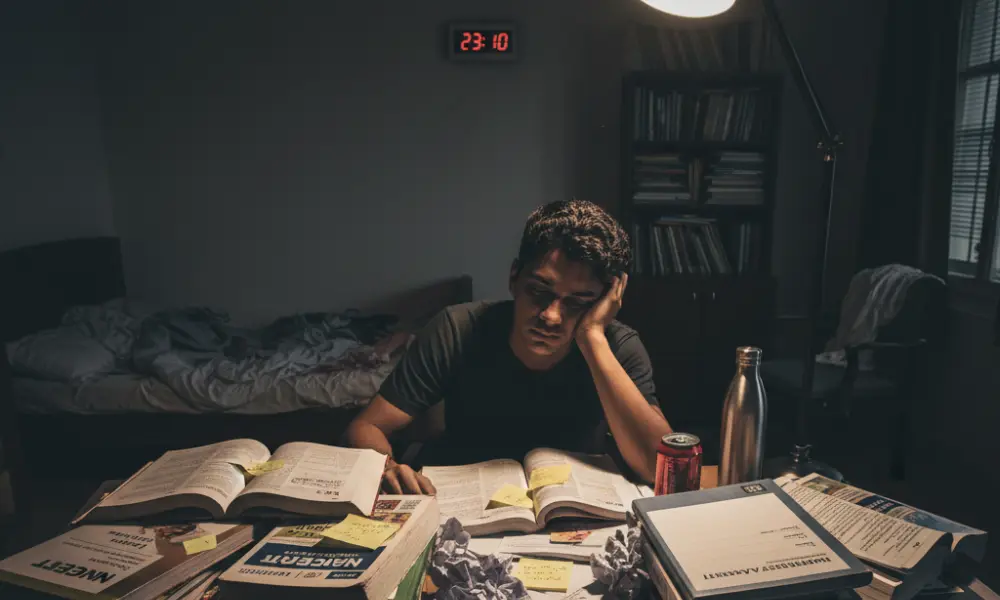Avoidable exam mistakes cost students marks — here’s how to fix them
This blog highlights the most common mistakes CBSE students make during exams, from time mismanagement to poor presentation, and provides actionable strategies to avoid them. It also shares a practical checklist for stress-free exam performance.

Many CBSE students walk out of the exam hall realizing they lost marks not because they didn’t know the answers but due to avoidable errors. Examiners often report that simple issues like skipping questions, misreading instructions, or untidy handwriting lead to marks being deducted unnecessarily. The first step in improving exam performance is to recognize these recurring mistakes.
Parents may also notice that their child knows the material thoroughly but underperforms in exams. This gap between knowledge and execution can be bridged by adopting better exam strategies and awareness.
One of the most common errors is poor time management. Students often spend too much time on questions they find difficult, leaving little time for those they could have answered accurately. Some students rush through the paper and finish too early without revising, while others struggle to complete it at all.
The solution lies in practicing with timed mock tests. Students should divide exam time based on question weightage. For example, in a three-hour paper, allocate 15 minutes for reading the question paper, 2 hours and 30 minutes for writing, and 15 minutes for revision. Using this simple structure reduces panic and ensures balanced attention across all questions.
Every CBSE question paper begins with instructions, but many students skip reading them carefully in their rush to start writing. As a result, they may miss crucial details such as word limits, compulsory sections, or specific formatting requirements. For instance, an instruction may specify that only three out of five questions should be attempted, yet students sometimes attempt all five, wasting valuable time.
The fix is straightforward: dedicate the first 10 to 15 minutes to reading the entire question paper, including instructions. This not only clarifies the structure but also helps students mentally prioritize their answers.
Even the best answers lose impact if they are difficult to read. Examiners evaluate hundreds of answer sheets daily, and untidy handwriting or poor organization makes it harder for them to award full marks. Presentation errors also include writing in a cramped style without paragraphs, failing to underline key terms, or leaving diagrams unlabelled.
Students should practice writing clearly and legibly. Leaving space between answers, underlining important words, and numbering answers properly makes a big difference. Parents can encourage children to do written practice under exam-like conditions instead of only studying orally.
In the pressure of exams, students often cross out words repeatedly or overwrite answers. This makes the paper look messy and sometimes confuses examiners. In subjects like Mathematics or Physics, overwriting a figure or equation may even lead to marks being deducted.
The best strategy is to think before writing. If a mistake is made, neatly cross out the incorrect line with a single strike and rewrite below. Keeping the answer sheet clean leaves a better impression and avoids ambiguity.
Diagrams play an important role in Science, Geography, and even some parts of Economics. Many students either skip diagrams due to lack of practice or fail to label them properly. A well-drawn diagram with correct labels can fetch full marks even if the written answer is brief. Conversely, an unlabeled or incorrect diagram results in marks being deducted.
Students should maintain a separate notebook for practicing diagrams. Neatness, proportion, and correct labeling are crucial. Using a ruler for straight lines and sharpening pencils for clarity can make diagrams exam-ready.
Stress often leads students to make psychological errors such as misreading questions, leaving sections blank, or panicking midway. Some freeze when they see a tough question at the start of the paper, which lowers their confidence for the rest of the exam.
To counter this, students should train their mind with relaxation techniques. Deep breathing, short meditation before entering the exam hall, and a positive mindset go a long way. Parents can support by offering reassurance instead of adding pressure, reminding children that exams are a reflection of preparation, not self-worth.
A simple checklist can prevent last-minute mistakes. Students should keep these points in mind before and during the exam:
Read all instructions carefully before starting
Divide time according to question weightage
Maintain legible handwriting and structured answers
Underline key terms and highlight main points
Draw and label diagrams neatly wherever required
Avoid overwriting and keep the paper tidy
Revise answers in the last 10–15 minutes
Stay calm and focused, even if some questions seem tough
Exams are not just a test of knowledge but also of strategy and discipline. Avoiding small mistakes can make a big difference in final results.
By being aware of these common pitfalls, CBSE students can approach exams with greater confidence and clarity. For parents, guiding children through mock tests, encouraging neatness, and reducing exam anxiety can provide the right support system. Platforms like Edzy also offer timed quizzes, revision guides, and AI-powered feedback to help students minimize errors and maximize marks.

How to Prepare for the New CBSE Competency-Based Question Format
Mastering the new CBSE exam format for better academic performance

CBSE Question Paper Analysis: Trends You Must Know for 2025 Exams
Unlocking the secrets of CBSE question papers for smarter exam preparation

Top 10 Mistakes Students Make During Board Exam Preparation
Learn how to avoid common pitfalls in board exam preparation

CBSE Science Practical Exams: The Complete Student Guide
Master your CBSE Science practical exams with confidence and skill.